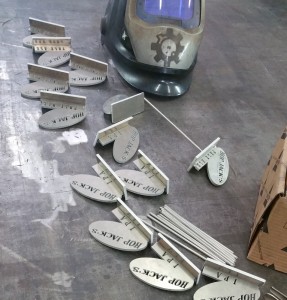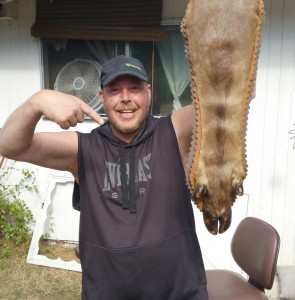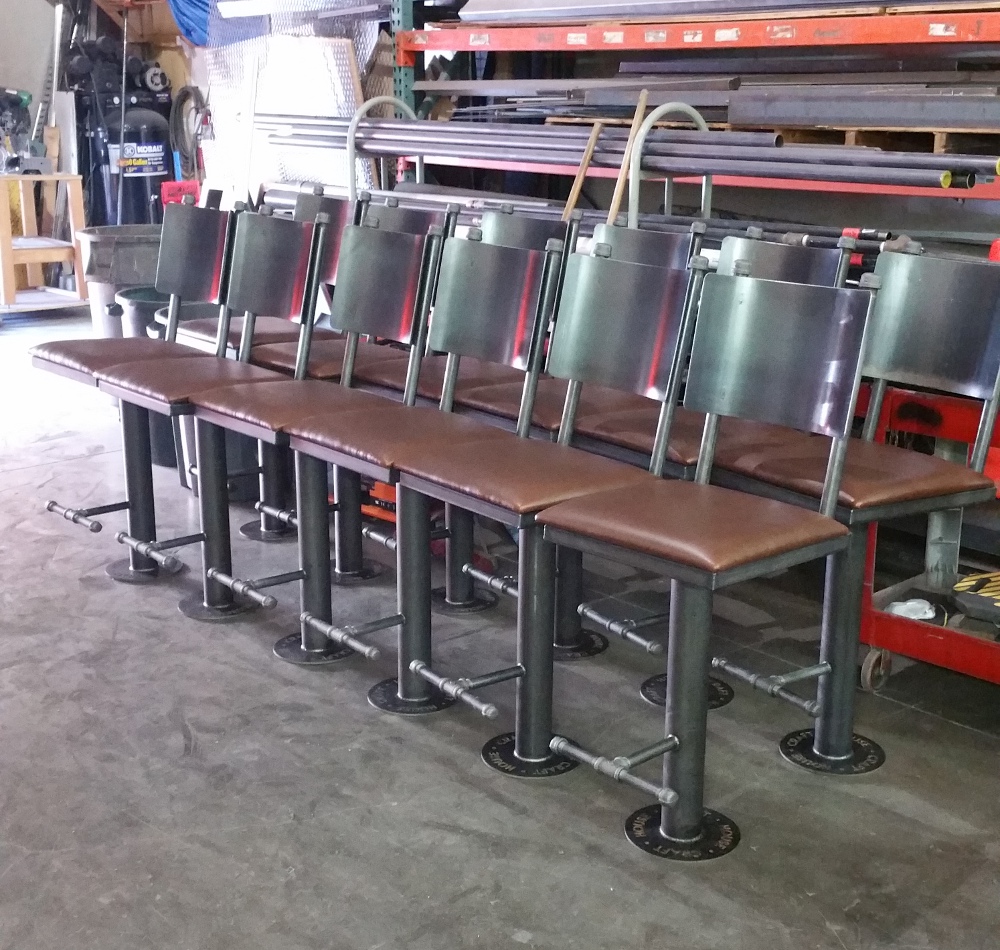You want to read all of this series. The Cliff’s Notes are here and a good place to start. Bonus North Carolina Bosom Buddy holster-bra inventor/international assassin connection.

Subtly, the flunky named his new bike “Blood Money.”
Stephen Hsu’s post (hat tip) emphasizes the intellectual interest in the high-iq loner; for me, the series has more of a practical fascination.
Le Roux (not pictured above) had the classic entrepreneur’s approach: find a business model, start up an LLC or inc. to run it siloed from your other businesses, say “go” and see if it works. If it doesn’t, kill it. If it does, let it run while you use the money to start up something else. Diversify. Competent, smart people like Le Roux grow business ventures like Topsy. I work for some of them.
Those who think Trump University reveals something dishonest or fraudulent about the man don’t understand the extent to which our economy has turned in recent years to rent-seeking as a business model, with regulatory capture and evasion as costs of doing business.
“Trump has a failed magazine!” said the journalists who couldn’t start a business if they tried. “Trump Steaks was a failure!” Wrong, idiots, those ventures started with a retail business model, and when that didn’t work they got repurposed to supply Trump’s other businesses. Trump Steaks is nothing more than a meat version of the private-label stock-market-ticker hosting business where I started my career.
(1) Find something somebody wants
(2) License it so you’re the monopoly supplier
(3) Profit.
Trump University? Hey, the government’s guaranteeing student loans, no matter what price we charge for tuition! Let’s get some of that action! Lawsuits are a cost of doing business. Make sure you pay the liability insurance premiums you baked into the financials before you pressed “Go.”
Rent-seeking, baby.
And with rent-seeking, since it’s the regulators that can kill you, you need to limit your exposure to them. On the back end, you make it tough for them to figure out what you’re doing (“regulatory evasion”); on the front end, you make them like you (“regulatory capture”).
Part of limiting liability and regulatory exposure can involve judicious use of nominees and anonymity. It ain’t just for criminals. Witness Le Roux, whose main revenue source (prescription drug marketing) arguably wasn’t criminal at all, just subject to regulatory fines because his doctors filled scrips “too fast.”
Before Le Roux started putting accounts in other people’s names, he had his name involved a little bit,†Jody told me. A few of those I had encountered myself: Le Roux’s name attached to a Florida company cited in a 2008 FCC complaint, for instance, about a marketing call made to someone in the National Do Not Call Registry.
“If he had gone the anonymous route a little bit earlier in the enterprise, we would have no chance of figuring out who was really behind this,†Jody said. “It would have just taken too long to get past that first layer. He got greedy. He probably could have closed up shop in 2006 or 2007, been a rich millionaire, and never have been investigated at all.â€
Emphasis mine. I laughed at the Panama Papers; despite all the pearl-clutching, all they “exposed” was a well-established practice of using shell corporations and nominees that’s simply been making more and more business sense every year, both to limit liability and reduce regulatory exposure, since I graduated from law school twenty years ago. If I don’t recommend it to a client I’m committing malpractice. Any entrepreneur would be a fool not to take routine steps to make it harder for any government busybody to drill right through. Look, Le Roux’s big business was linking up patients who wanted inexpensive prescriptions with doctors who wanted to prescribe them. No libertarian should have a problem with that.
Note especially the final part of the series, where Le Roux demonstrates that he knew exactly what posed a criminal risk and what didn’t. It ain’t conspiracy to commit murder if you do it in a country without a conspiracy statute. It ain’t illegal to set up a private army and buy weapons for it if you do it in a place with no functioning laws, like Somalia. And if you end up in a bad jurisdiction, like the US, well, you can evade any charge if you make sure you’re valuable enough to cut a deal with prosecutors who want to make a name for themselves. The risk is just part of doing business, and when you calculate it that way, it ain’t all that risky, is it?
Le Roux had the clandestine back-end set up right; all economies are Fascist Italy nowadays, and you just have to make sure the government leaves you alone with some judicious bribes; he did that well in his Third World base. But in the First World, the bribes have to be done a bit differently. Le Roux didn’t have that front-end part set up. Creating a couple of nonprofits, doing some visible charitable work, and paying some lobbying fees would have done it. See: Bill and Hillary.







